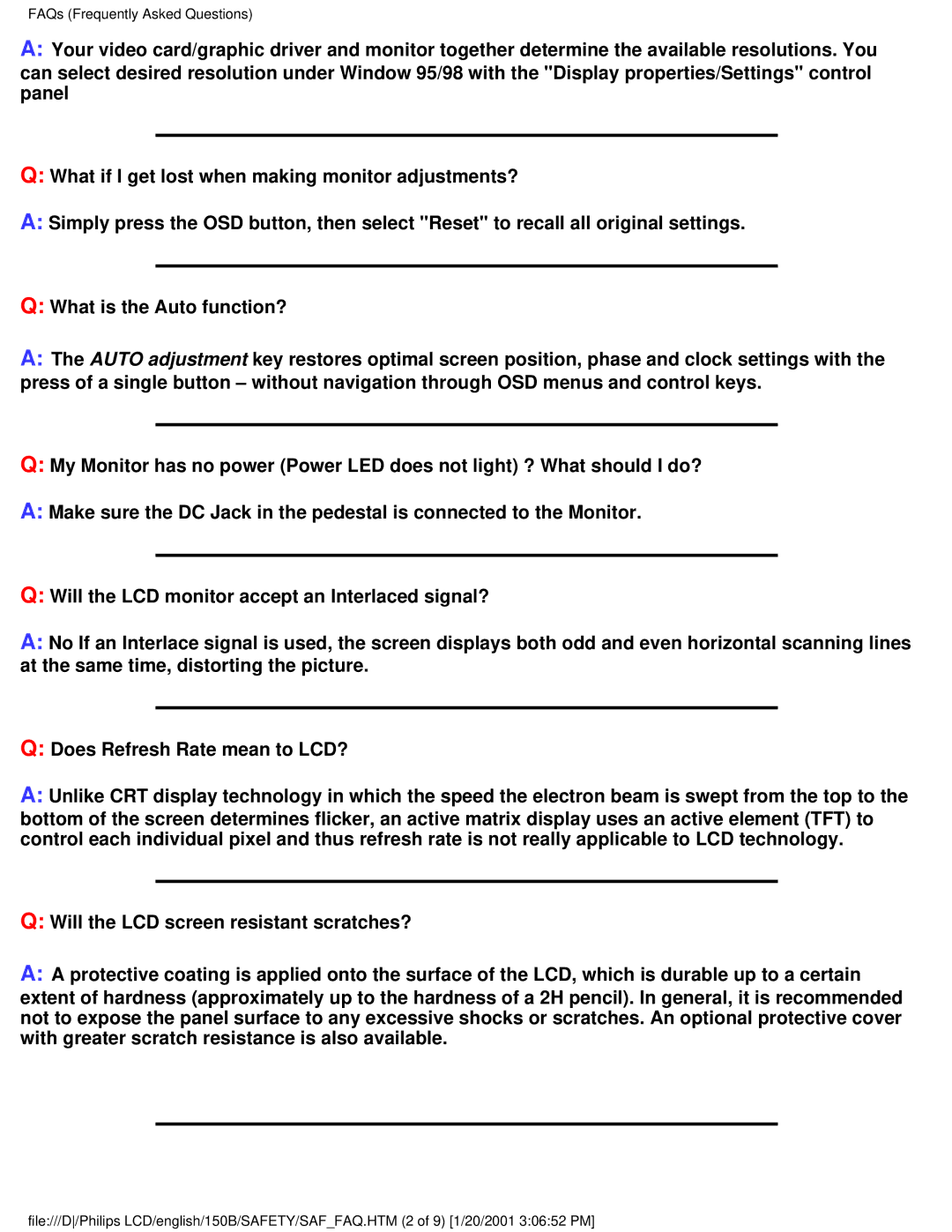
FAQs (Frequently Asked Questions)
A:Your video card/graphic driver and monitor together determine the available resolutions. You
can select desired resolution under Window 95/98 with the "Display properties/Settings" control panel
Q:What if I get lost when making monitor adjustments?
A:Simply press the OSD button, then select "Reset" to recall all original settings.
Q:What is the Auto function?
A:The AUTO adjustment key restores optimal screen position, phase and clock settings with the press of a single button – without navigation through OSD menus and control keys.
Q:My Monitor has no power (Power LED does not light) ? What should I do?
A:Make sure the DC Jack in the pedestal is connected to the Monitor.
Q:Will the LCD monitor accept an Interlaced signal?
A:No If an Interlace signal is used, the screen displays both odd and even horizontal scanning lines at the same time, distorting the picture.
Q:Does Refresh Rate mean to LCD?
A:Unlike CRT display technology in which the speed the electron beam is swept from the top to the
bottom of the screen determines flicker, an active matrix display uses an active element (TFT) to control each individual pixel and thus refresh rate is not really applicable to LCD technology.
Q:Will the LCD screen resistant scratches?
A:A protective coating is applied onto the surface of the LCD, which is durable up to a certain
extent of hardness (approximately up to the hardness of a 2H pencil). In general, it is recommended not to expose the panel surface to any excessive shocks or scratches. An optional protective cover with greater scratch resistance is also available.
file:///D/Philips LCD/english/150B/SAFETY/SAF_FAQ.HTM (2 of 9) [1/20/2001 3:06:52 PM]
